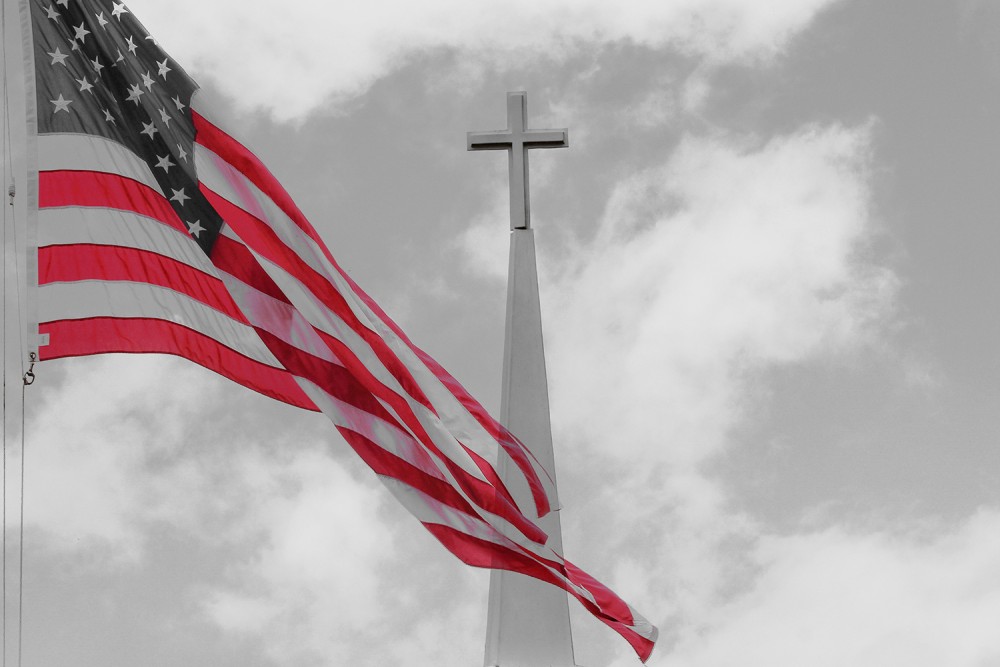What is religious freedom for?
The church’s calling is far more exciting and urgent than endorsing political candidates.

Source photo: Amanda Wayne / iStock / Getty
Tracking every Trump administration pronouncement on religion can be a dizzying project. Religion has found its way into multiple executive orders, new commissions and task forces, Truth Social posts, and White House press briefings. All of this is making 2025 an eventful year for religion news. To help make sense of some trending developments, I share the following impressions.
Issues surrounding religious freedom continue to dominate the spotlight, thanks to Christian conservatives eager to make a particular brand of Christianity the default for American religion and keen on creating closer ties between religion and government. Exactly what religious freedom means and how it should be applied depends on who you ask. Does it stand at the heart of American democracy as a fundamental constitutional right, applied indiscriminately and dedicated to inclusive pluralism? Or is it code language for intolerance, Christian supremacy, and whatever beliefs those in power happen to sanction? What’s clear is that the ground has shifted considerably from 1993, when a nearly unanimous Congress voted the Religious Freedom Restoration Act into law.
Today, the loudest voices for religious liberty highlight conservative priorities that privilege the country’s Christian majority in what Rabbi Jeffrey Salkin calls an “aggressively Christian soundtrack.” As just one example, the fact sheet accompanying the Trump administration’s announcement of the new Religious Liberty Commission vows to promote “peaceful religious pluralism,” but the only religion it makes direct reference to is Christianity.
The conservative tactic for controlling the religious freedom narrative is to conflate a difference of beliefs with systemic persecution or theological and policy disagreement with an infringement on personal rights. Not surprisingly, language of victimhood is common on the religious right. President Trump has repeatedly stated that Christians and Christianity are under attack—an absurd notion in a majority Christian country. Nevertheless, his February 6 executive order, “Eradicating Anti-Christian Bias,” repeatedly decries the Biden administration’s “unlawful conduct targeting Christians.” At the National Prayer Breakfast, Trump made the scurrilous claim that Democrats “oppose religion . . . [and] oppose God.” Persecution language filled his remarks at the signing of “Promoting Free Speech and Religious Liberty,” a May 4 executive order: “We will not allow people of faith to be targeted, bullied, or silenced anymore. . . . We are ending the attacks on your religious liberty. . . . We will never, ever stand for religious discrimination.” Around the world, we might note, when a majority in a given country begins to claim persecution, that has often provided license to attack minority parties, religions, or tribes.
Readers of this magazine may be especially curious about the potential impact of a July 7 legal filing by the IRS that would loosen current prohibitions on churches endorsing political candidates from the pulpit. Trump has long detested the 1954 Johnson Amendment, which threatens to strip the tax-exempt status of churches and other 501(c)(3) organizations engaged in partisan campaigning. According to polls, an overwhelming majority of Americans don’t want their houses of worship spending energy on party politics. “Watching donkeys and elephants prance across the chancel is not what congregants [come] to church for,” says theologian Ted Peters.
I, for one, am less anxious about what the IRS ruling might do to congregations than I am about how certain politically enthusiastic pastors might distort the church’s mission or their own calling. Regardless of what the law may permit, the church must always offer what ethicist Robin Lovin calls “something more than a Christian version of polarized identities.” The central activity of the church is to relocate our self-importance by having us listen attentively to the word of God and to our neighbors, particularly those who dwell on the margins of society. The best faith communities help us practice habits of faith, hope, and love, just as they nurture among us a moral vocabulary increasingly absent from public life. This is exciting work. We get to feed the hungry, says Lovin, “not to make America great again, but because the hungry person needs bread.” No change to federal statute or law can alter the beauty of that work.





